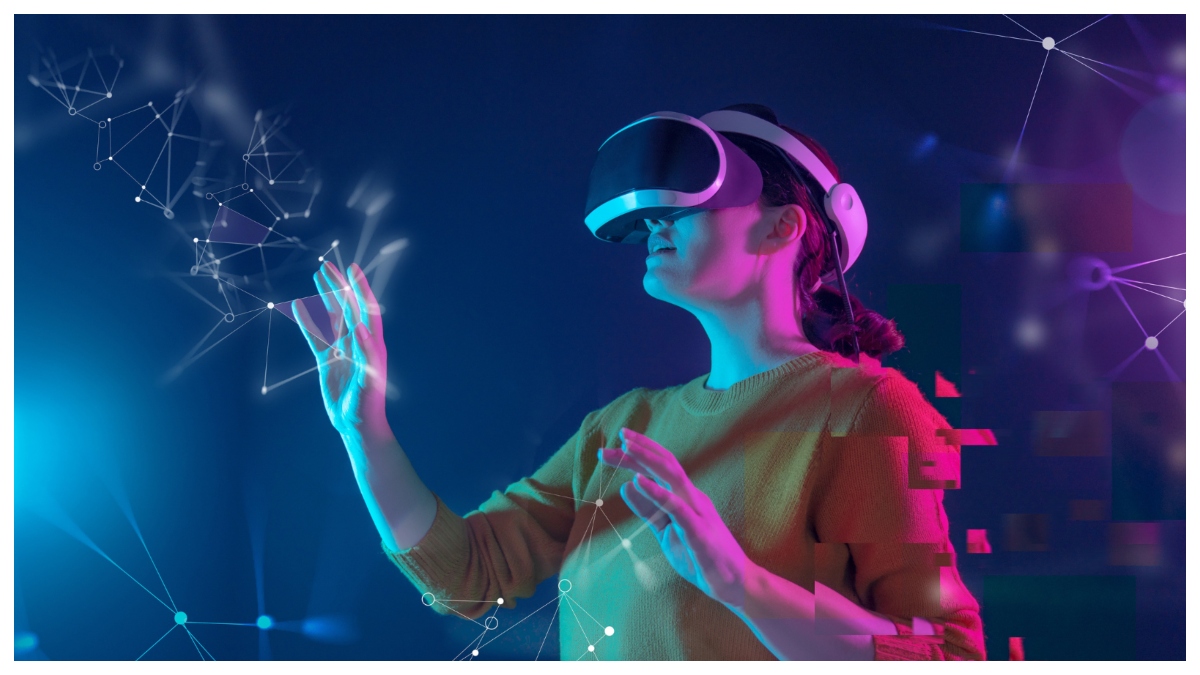British authorities are presently conducting an investigation into a disturbing case involving the alleged gang rape of a girl’s virtual reality (VR) avatar within a metaverse game. The incident unfolded as the 16-year-old girl engaged in an immersive game using a Virtual Reality (VR) headset. Although the victim did not endure any physical harm, law enforcement in the UK is taking the emotional and psychological repercussions of the incident seriously.
This is not the first instance of this sort. In 2022, a 43-year-old British woman claimed that she experienced verbal and sexual harassment within Meta’s metaverse, specifically on Horizon Venues. She reported that within just 60 seconds of entering the virtual world, her avatar was subjected to what she described as a “virtual gang-rape” by three or four male avatars.
What is metaverse?
The metaverse is an expansive online virtual world that combines elements of augmented reality, virtual reality, 3D holographic avatars, video, and various communication channels. It provides a hyper-real alternative environment where individuals can engage in activities such as shopping, attending events, networking, playing games, and more through their virtual avatars. The metaverse essentially creates a parallel digital universe that allows users to interact with each other and their surroundings in a computer-generated space, offering a multifaceted and immersive experience.
The impact of abuse is genuinely felt by users.
In the metaverse, users report that when they encounter physical contact from others, their hand controllers vibrate, leading to a disorienting and unsettling experience during virtual interactions. An incident involving a user named Patel, who described a virtual assault where her avatar was gang-raped, sparked responses suggesting that choosing a different avatar or dismissing the incident as unreal was the solution. However, experiences like those of gamer Mari DeGrazia, who wore a haptic vest, demonstrate that the impact can extend to the physical realm. In virtual reality (VR), the immersive 360-degree simulation can make users genuinely feel sensations, such as touch, making virtual interactions have tangible effects on the users. Krutika Ojha, an Indian gamer, explains that actions like wearing or removing accessories in the virtual world can translate into real sensations, emphasizing the realism of the virtual experience.
Also Read: Whatsapp To Discontinue THIS Free Feature In 2024, Know More
More Stringent Measures And Policies
One of the current major concerns revolves around the lack of regulation for the metaverse by governmental or security bodies, making it susceptible to easy and widespread cybercrime. A gamer named Saloni Kandalgaonkar expressed her condemnation, emphasizing that gaming, which serves as her safe haven for self-expression and potential exploration, should not become an unsafe space for anyone, regardless of gender.
As the metaverse gained significant popularity within just two years of the pandemic, various interactive platforms emerged, attracting attention from diverse industries like fashion, events, and real estate. However, the rapid expansion brought forth issues of privacy and security. Technology experts argue that blockchain technology, a key component in addressing such concerns, is still in its early stages. Platforms are actively working to implement enhanced safety measures for users.
Creating Boundaries
In February, Meta introduced a feature called Personal Boundary on their metaverse platforms. This feature, when activated, prevents other users from approaching within two feet of the avatar, and if someone attempts to breach this boundary, the system stops their movement. Additionally, a software named ToxMod utilizes artificial intelligence to monitor and analyze user speech. If it detects abusive, harassing, or racist language, it can notify the chat room moderator and mute the offensive content. Despite these measures, Meta’s VR chat platform remains plagued with issues such as abuse, harassment, racism, and pornographic content.
Also Read: Attention Car Users! THIS Google Maps Feature To Be Unavailable From New Year









